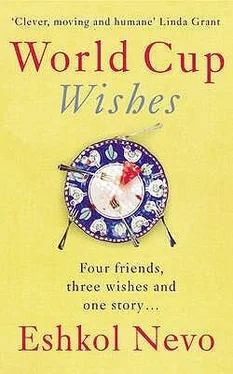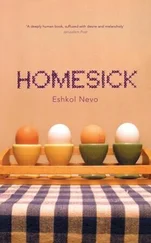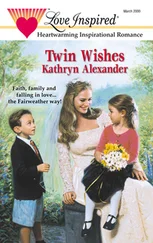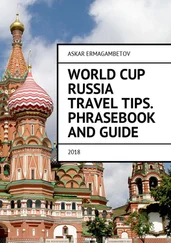I looked at him now as he cracked sunflower seeds with characteristic resolve (one precise press of his teeth, never more). I hope he succeeds, I thought. And at the same instant, a small voice inside whispered let him fail, let him fail.
Then I too turned my eyes to the TV screen. For the first few seconds, I stared at the ball lurching from side to side and had a tough time telling the teams apart — one was playing in red shirts, the other in green, and those are exactly the colours I can’t see because of my colour blindness. But soon enough, I noticed that one team had white shorts and the other black shorts, so I could follow the game, which was the kind I liked: the team playing a more defensive, uglier game scored a goal by accident during the first few minutes. And in the time that was left, the really good, more creative and skilled team tried to break through the defensive wall and right the wrong. Happily, just before the end, they managed to do it — they scored two quick goals and turned the result around.
Who said there’s no justice in football? the commentator waxed lyrical.
And Amichai said, those guys from Barcelona, they don’t play football, they dance.
True modern dance, Churchill agreed. And I said, when football reaches a certain aesthetic level, it becomes art. And Ofir got out of his hammock and said, who’s up for chai ? As we drank the sweet, spicy chai that spreads through your body, Maria and her daughter came in from a visit to Ilana. Ofi! Ofi! the girl cried, and ran straight into Ofir’s arms, as if the short separation of a few hours from him had been hard for her, and only now, when she was pressed up against his chest, was her mind at ease again. He asked her how it was at Ilana’s place, and she told him about all sorts of scientific experiments she and the twins had done together: they’d mixed vinegar and bicarbonate of soda and saw how a small volcano erupted. They’d poured starch into a glass of iodine and saw how the colour of the iodine changed. He listened intently, stroked her fine, blonde hair and asked small, fatherly questions. Meanwhile, Maria gave each of us one of her long hugs.
The first few times she’d hugged us, we were totally flustered. We’d look over her shoulder, trying to find out from Ofir when, for Buddha’s sake, it would end. When would she let us go? Then we became addicted to it, abandoned ourselves to it, and returned the pressure, the tightness, we too rested our heads in the hollow between her shoulder and her neck and felt the heat of her body seep into us, felt her large breasts rocking us, so much so that if she skipped someone on her round of hugs, he would complain and demand his hug.
This time, Amichai was the last to get a hug from her. And despite the accusations he’d hurled at her in her absence, he didn’t draw back. On the contrary. It seemed as if their hug was the longest, warmest of all, as if they poured into it all their concern and mutual love for Ilana. In any case, after that hug, the atmosphere in the wooden house in Michmoret seemed much more relaxed. Ofir gave us all more chai . The commentators in the studio had already begun talking about the return match in two weeks, and Churchill said, I’m going to say something now that Ofir always used to say.
It starts with ‘you have no idea’? Amichai guessed.
You have no idea what mood I was in when I came here today, Churchill said without a smile. That case … well, I can’t really talk about it … I just wanted to say that seeing you all … It made me feel so good … It made me put things in perspective … Reminded me of what’s important in life.
We didn’t say anything.
We could have asked what exactly had happened. Tried to help. But his tone didn’t invite questions (and perhaps it was us, still trapped in our perception of him as a rock). So we were quiet. And sipped our chai .
Amichai looked at Ofir and said, you were right before, what you said.
Ofir stroked the little girl’s hair and said, I don’t remember any more what I said.
Amichai laughed, it’s better that way, and that spark we all knew lit up in his eyes, the one that meant, in a little while, we’d be updated on a brilliant new idea.
And sure enough, a few days later, we all got phone calls inviting us to a farewell party for Ilana’s old nose. We’ll all meet at a Chameleons gig, Amichai said enthusiastically, and then we’ll go for a drink and have our pictures taken with the nose, which would have a ‘before’ book as a memento.
The Chameleons was our group. I mean, of course each one of us had his own separate musical favourites: Amichai liked movie soundtracks and Israeli twilight time songs. Ofir liked clever rappers when he was still in advertising, and then, when he came back from India, he liked instrumental music better. Churchill, on the other hand, thought lyrics should have meaning, so Ehud Banai was his favourite in the daytime and Meir Ariel at night. I liked British groups best. The Smiths. And later, the Stone Roses. And then I went by the song, not the group. But in any case, I didn’t listen to Israeli groups very much, except for the Chameleons, whose first album came out when we were in the army and pierced us with its beauty. Throughout our army service, lines from ‘It’s Not Black-and-White’ were embedded in our conversations and starred as the opening lines in our birthday wishes to each other. I remember one of Churchill’s birthday greetings that began with the quote, ‘And you have to remember, always remember, that spring comes in the end’. I don’t recall any more why he wrote that. Perhaps it was after we came back from our trip, when for no apparent reason, I fell into a kind of depression that bordered on panic. 1Anyway, we stayed loyal to the Chameleons even when it turned out that their next albums weren’t as good. And even after one of their performances we’d attended together was stopped in the middle because the two singers got into a fist fight. I believe them, Churchill said, trying to explain to Ya’ara why we were stuck on that group in particular. Their songs are getting worse, but I always believe them.
You all see your youth in the Chameleons, Ya’ara claimed. I think that’s what it is. You always hear them twice: as the people you are now and also as eighteen-year-olds.
Both she and Churchill were right, apparently. But still, I told Amichai I wouldn’t be at the show or afterwards at the farewell party for Ilana’s nose.
But why not? he asked, disappointed.
How many times can a person see the Chameleons? I lied. That’s it. I’m sick of them. Besides, lately their songs are all Tel Aviv. There’s nothing left of their Haifa-ness.
Like you haven’t been a Tel Avivian for seven years now, Amichai chided me. But forget it, if you don’t feel like seeing them, no problem. Meet us afterwards.
Maybe, I said, trying to get out of it. I don’t know. Why do you care so much whether I come?
What are you talking about? Amichai said, raising his voice. You’re my friend. And Ilana’s. I don’t understand the question. Is it because the three of us are couples now and you’re not?
Honestly … yes, I said, half truthfully. I’m happy for all of you, but I don’t always feel comfortable at those couples’ nights out.
OK, Amichai said, his tone measured. And after a brief silence, he added: just don’t forget that everything’s fluid.
What does that mean?
Listen to this story. Yesterday I had a call from Mr Bass from the Parents’ Retirement Home in Rishon le Ziyon. Pardon me, but I hope you remember me, sir, he says to me. And I think: remember, of course, how can I forget. Five hours — five hours! — he kept me sitting across from him. He told me his whole life story, including the time he spent in the forest with the partisans, and in the end, he said, with no shame at all, that he’d never had any intention of buying a subscription. Why should he? Anyone who survived the camps has a heart strong enough to take anything. A year goes by, and he calls me again and asks if the offer I made at our last meeting is still on the table. Yes, I tell him. Including the special discount for people born in Austria? Yes, I tell him. What happened, Mr Bass? You’ve changed your mind? Circumstances have changed, he tells me, and asks for an appointment the same day because it’s very urgent. And what does he tell me at our meeting? A few months earlier, a young woman named Shulamit came to live at the home and ‘a great love the likes of which I have never known in my life’ ignited between them. He was married to Chaya’le for fifty years, he explains to me. We had a good life together. We built a home and raised a family together. But I never felt excitement like this. And I never imagined such a thing could be possible, he says. Well, that sounds wonderful, I say, trying to share his happiness. But then I see that he’s a bit pale. My heart, he says and puts a hand on the wrong side of his chest. All I have to do is say her name for it to start pounding. And she might be young, but I’m not.
Читать дальше












